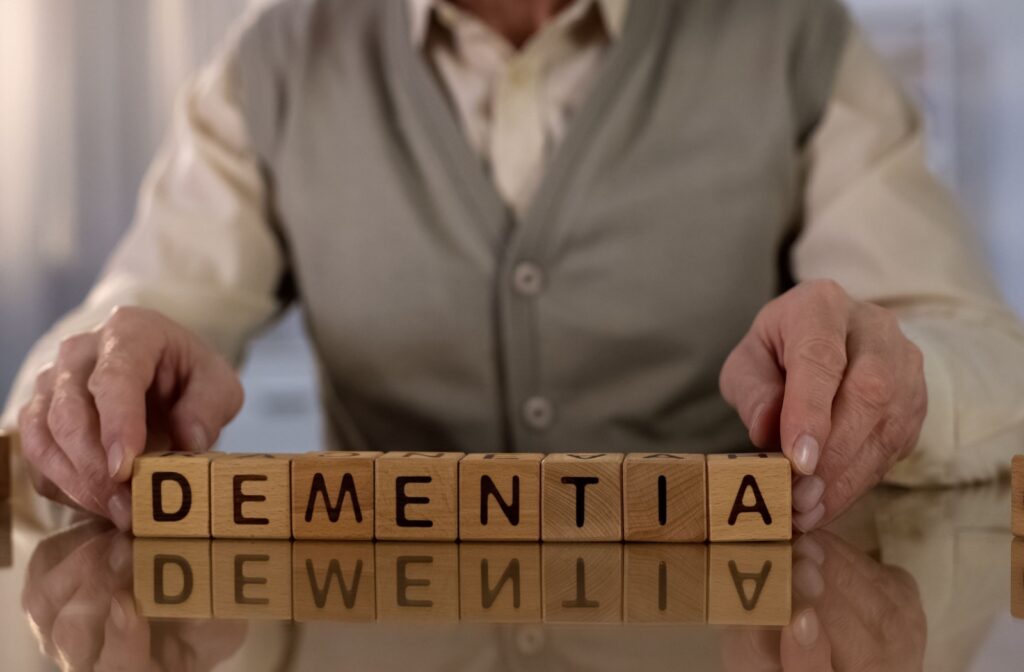Dementia, a term that encompasses a range of cognitive and behavioral disorders, primarily affects older adults, although it can sometimes manifest in younger individuals. Early detection is crucial for managing the condition effectively and planning for the future. The most common signs of dementia usually include the following:
- Memory loss that disrupts daily life
- Difficulty planning or solving problems
- Trouble completing familiar tasks
- Confusion with time or place
- Trouble understanding visual images and spatial relationships
- New problems with words in speaking or writing
- Misplacing items
- Impaired judgment
- Withdrawing from social activities
- Changes in mood and personality
What Is Dementia?
Dementia is not a specific disease but a general term that describes a decline in cognitive function, often severe enough to interfere with daily life. It can be caused by various diseases and injuries that affect the brain, such as Alzheimer’s disease or stroke. Dementia manifests in various ways, depending on the affected part of the brain, but it typically involves issues with memory, attention, communication, reasoning, and visual perception.
Early Warning Signs
Recognizing the early signs of dementia can be challenging because they often resemble normal signs of aging. However, the following symptoms may indicate the onset of dementia when they are persistent, severe, and progressively worsen:
Memory Loss That Disrupts Daily Life
While it’s normal to occasionally forget appointments or names, frequent memory loss, particularly of recent events or important dates, that disrupts daily life can be a hallmark of dementia.
Difficulty Planning or Solving Problems
Some people may experience changes in their ability to develop and follow a plan or work with numbers. They might struggle with following a familiar recipe or keeping track of monthly bills. They may have difficulty concentrating and take much longer to do things than they did before.
Trouble Completing Familiar Tasks
People with dementia often find it hard to complete daily tasks that used to be routine, such as driving to a familiar location, organizing a grocery list, or remembering the rules of a favorite game.
Confusion with Time or Place
It is common for people with dementia to lose track of dates, seasons, and the passage of time. They can become lost in their own neighborhood and forget where they are or how they got there.
Trouble Understanding Visual Images & Spatial Relationships
For some, having vision problems is a sign of dementia. They may have difficulty reading, judging distance, and determining color or contrast, which may cause problems with driving.
New Problems with Words in Speaking or Writing
People with dementia may have trouble following or joining a conversation. They may stop in the middle of a conversation and have no idea how to continue, or they may repeat themselves. They may also struggle with vocabulary, have trouble naming a familiar object, or use the wrong name.
Misplacing Items
A person with dementia may put things in unusual places, lose things, and be unable to go back over their steps to find them again.
Impaired Judgment
Decision-making abilities can decline for someone with dementia. This may be evident in attention to personal grooming or in making unwise decisions about financial matters.
Withdrawal from Work or Social Activities
A person with dementia may start to withdraw from hobbies, social activities, work projects, or sports. They may have trouble keeping up with a favorite sports team or remembering how to complete a favorite hobby. They may also avoid being social because of the changes they have experienced.
Changes in Mood & Personality
People with dementia may become confused, suspicious, depressed, fearful, or anxious. They may be easily upset at home, at work, with friends, or in places where they are out of their comfort zone.
When to Seek Help
If you or someone you know is experiencing any of the signs mentioned above, it is important to consult a healthcare professional. Early diagnosis allows for the best possible management of the condition, including treatment of any underlying causes and management of symptoms.
Early-stage dementia offers an opportunity for individuals and their families to establish support networks, consider legal and financial planning, and address potential safety issues. Support groups, counseling, and caregiver resources can provide essential help. Maintaining a healthy lifestyle, including physical activity, a balanced diet, cognitive stimulation, and social engagement, is also beneficial.
The Path Toward Memory Care
Recognizing the early signs of dementia is key to managing and adapting to life with the condition. While the prospect of dementia can be frightening, early detection and proactive management can significantly improve quality of life. If you suspect that you or a loved one might be showing signs of dementia, don’t hesitate to seek professional advice. The journey with dementia is undoubtedly challenging, but support is available, and you are not alone.
At Barton House Memory Care, we have many senior living options to help you and your loved one. Book a tour with us today to learn more about memory care.



